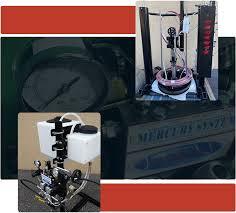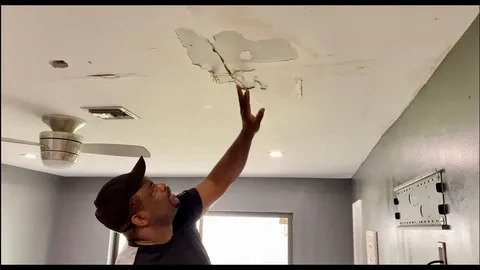In the UAE’s evolving regulatory environment, internal audit committees play an instrumental role in strengthening governance, oversight, and accountability in both public and private sectors. As stakeholders demand higher transparency and assurance, organizations increasingly rely on robust internal audit committee dynamics to monitor risk, internal controls, and strategic alignment. For firms seeking specialized support, internal audit service in Dubai is often turned to as a means of injecting external objectivity and technical competence into existing governance frameworks.
Effective audit committees must balance independence, expertise, and interaction with management and internal audit. In many UAE-based entities — whether government agencies, state-owned enterprises, or private companies — the audit committee acts as the bridge between the board and the assurance functions. For local firms and multinational players alike, adopting sophisticated oversight practices is no longer optional. Indeed, when companies engage a professional internal audit service in Dubai, they bolster their committee’s ability to drive compliance, risk oversight, and performance.
Governance Frameworks in UAE: Standards & Regulatory Environment
Regulatory Landscape & Governance Codes
The foundational corporate governance framework for listed entities in the UAE is anchored in the SCA (Securities & Commodities Authority) UAE Corporate Governance Code, which mandates independent audit committees responsible for oversight of financial reporting, internal controls, and governance procedures. Recent amendments under SCA Board Decision No. (2/RM) of 2024 reinforce requirements around board composition, internal control frameworks, and the separation of compliance and audit functions.
Beyond listed companies, regulatory bodies such as the Central Bank of the UAE require financial institutions to maintain independent internal audit functions and permanent, effective oversight of controls and risk. In banking and public sector agencies, internal audit has an official mandate to report to audit committees or equivalent oversight bodies to preserve functional independence.
Three Lines Model & Internal Controls
Most UAE organizations adopt the Three Lines Model (formerly Three Lines of Defense) for structuring governance and assurance. The first line corresponds to operational management and control execution; the second line includes risk and compliance oversight; and the third line is internal audit, which offers independent assurance to the board via the audit committee.
In aligning internal control practices, many UAE entities reference the COSO (Committee of Sponsoring Organizations of the Treadway Commission) framework, integrating its five components (control environment, risk assessment, control activities, information & communication, and monitoring) to create cohesive control systems. Because COSO is widely accepted globally, UAE organizations seeking to benchmark internal control maturity align with its principles, especially in sectors with cross-border operations.
Distinctions between Public & Private Sector Requirements
In the public sector (government ministries, municipal bodies, government-owned entities), audit committees are often structured under stricter mandates and higher transparency norms. They may be subject to directives from federal or emirate-level oversight bodies, with requirements for periodic reporting, external audit integration, and stringent conflict-of-interest policies.
In the private sector, particularly family-owned firms or small to mid-size enterprises, audit committees may not always be mandatory by law. However, best practice is trending toward instituting them voluntarily, especially in firms with aspirations for public listing or for improved stakeholder confidence. Private firms often contract external expertise or supplement internal audit capacity by engaging internal audit service in Dubai to establish governance best practices.
Dynamics of Audit Committees: Composition, Roles & Interactions
Composition and Skill Mix
A high-performing audit committee requires a balance of independence, subject matter expertise, and diversity of thought. Members should bring financial acumen, risk awareness, IT controls understanding, and governance insight. In UAE listed entities, requirements often include a majority of non-executive directors, with at least one independent director and one member skilled in accounting or auditing.
The chair of the audit committee plays a pivotal role in setting agenda, managing discussion dynamics, and ensuring accountability. The audit committee should not be dominated by the board chair or executive management to preserve independence.
Roles & Scope
The core roles of an audit committee typically include:
- Oversight of financial reporting integrity and compliance
- Review of internal and external audit plans, findings, and remediation
- Ensuring adequacy of internal control systems and risk management frameworks
- Monitoring related party transactions and conflict of interest matters
- Liaison with external auditors on scope, independence, and findings
- Approving the internal audit charter, and evaluating internal audit performance
In the UAE context, recent SCA amendments require audit committees to issue an annual report on their activities, endorsed by the committee chair, and present it to shareholders in the annual general meeting. Also, combining compliance and internal audit into a single function is no longer permissible under updated governance guidelines.
Interaction with Internal Audit & Outsourced Providers
The audit committee must maintain a strong working relationship with internal audit while resisting undue influence. Internal audit should enjoy functional and operational independence, free from interference in audit scope or staffing. The audit committee should approve the internal audit charter and review any risk-based audit plan submitted by internal audit.
In practice, many UAE firms engage external specialists or internal audit service in Dubai to supplement their internal capabilities. Such arrangements can help the committee access additional objectivity, subject-matter expertise in niche areas (e.g., cybersecurity, regulatory risk), or sector-specific comparators. Using an external service necessitates clear terms of reference, scope agreements, and oversight to ensure alignment with internal audit objectives.
Key Success Factors & Challenges in UAE Context
Enabling Dynamics for Effective Oversight
- Tone at the Top – Leadership commitment to governance, ethical standards, and risk culture is essential. If the board and senior executives respect the audit committee’s mandate, the committee’s recommendations are more likely to be embraced.
- Cognitive Diversity & Challenge Culture – Audit committees need to encourage dissent, critical debate, and diverse perspectives to avoid groupthink.
- Adequate Resources & Access to Information – The committee must access necessary documentation, systems, and insights. Audit teams (internal or outsourced) should also have data analytics tools and audit management systems to present timely risk-based reports. Many UAE entities now integrate technology platforms for governance, risk, and compliance (GRC) to support oversight functions.
- Clear Reporting Lines & Independence – Internal audit should report functionally to the audit committee, not to management, to maintain objectivity. The audit committee should evaluate audit performance and set remuneration or budget, free of management interference.
- Continuous Training & Refreshing Expertise – Given evolving regulatory, technological, and risk landscapes (e.g., cyber risk, ESG, AI governance), committee members and internal audit staff must keep up with best practices, standards, and sector-specific risks.
Challenges Unique to UAE Entities
- Regulatory convergence and evolving mandates: With ongoing changes in SCA regulations, central bank rules, and free zone governance codes, audit committees must stay current. The 2024 SCA amendments, for example, introduced new requirements around audit committee reporting and board structure.
- Balancing local norms and international expectations: UAE businesses often operate within family or government-linked structures. Ensuring genuine independence, avoiding conflicts of interest, or handling related party transactions can be delicate.
- Resource constraints in small and medium enterprises (SMEs): Many smaller firms may lack full-time internal audit teams. For these, contracting external internal audit service in Dubai can mitigate capability gaps but require strong oversight and alignment.
- Technology and data challenges: Lack of integrated audit and risk systems may hamper real-time monitoring. Adoption of advanced GRC and audit analytics tools is still maturing across sectors.
- Cultural and change management hurdles: Introducing strong audit committee regimes into traditionally hierarchical or informal decision-making cultures may provoke resistance. Securing buy-in from founders, managers, and employees is essential.
Strategic Roadmap for Audit Committee Maturation
To elevate audit committee effectiveness in UAE organizations:
- Formalize and regularly review the audit committee charter, roles, and scope
- Establish a skills matrix to guide member selection and rotation
- Periodically conduct self-assessments of committee performance
- Leverage internal audit service in Dubai as a supplement or benchmark, while ensuring alignment with internal team efforts
- Embed technology tools that support audit planning, risk mapping, dashboards, and reporting
- Encourage cross-committee collaboration (e.g., risk, compliance, ESG) to avoid silos and ensure holistic oversight
- Promote continuous education on emerging risks, regulatory changes, and governance innovations
By proactively strengthening audit committee dynamics and anchoring them within a resilient governance framework, public and private sector organizations in the UAE can enhance trust, compliance, and sustainable performance.
Also Read: Continuous Auditing Models in UAE Enterprises: A Paradigm Shift for Internal Audit




